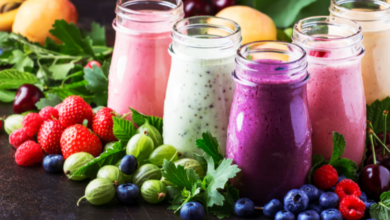Is Honey Safe During Pregnancy?

Introduction
Honey is a natural sweetener known for its potential health benefits, but its safety during pregnancy can be a topic of concern for expectant mothers. Understanding the potential risks and benefits of consuming honey during pregnancy is crucial for maintaining both maternal and fetal health. This comprehensive guide explores the safety of honey consumption during pregnancy, potential benefits, risks, and recommendations for incorporating honey into a balanced diet.
- Nutritional Value of Honey
1.1 Composition of Honey
- Natural Sugars: Honey is primarily composed of natural sugars, including fructose and glucose, which provide energy and a sweet taste.
- Vitamins and Minerals: It contains small amounts of vitamins (such as B vitamins) and minerals (like calcium, iron, magnesium, and potassium), which contribute to overall nutritional value.
- Antioxidants: Honey has antioxidant properties due to compounds such as flavonoids and phenolic acids, which may offer health benefits.
1.2 Health Benefits
- Soothing Properties: Honey is often used as a natural remedy for soothing sore throats and coughs due to its antimicrobial and anti-inflammatory properties.
- Digestive Health: It can have prebiotic effects, promoting the growth of beneficial gut bacteria and aiding in digestion.
- Skin Health: Honey is sometimes used in topical applications for its moisturizing and healing effects on the skin.
- Safety of Honey During Pregnancy
2.1 General Safety
- Pasteurization: Generally, pasteurized honey is considered safe for pregnant women. Pasteurization involves heating the honey to kill potential bacteria and spores, reducing the risk of foodborne illnesses.
- Pregnancy Category: The U.S. Food and Drug Administration (FDA) does not classify honey as a risk during pregnancy, assuming it is consumed in moderation and is pasteurized.
2.2 Risks of Honey Consumption
- Botulism Risk: Raw honey can contain spores of Clostridium botulinum, a bacterium that causes botulism. While botulism is rare in adults due to the mature digestive system, the risk is particularly significant for infants, whose immune systems are not fully developed. However, adults, including pregnant women, are generally at low risk for botulism from honey.
- Allergic Reactions: Some individuals may have allergies to certain components in honey, such as pollen or bee proteins. Pregnant women with known allergies should exercise caution and consult their healthcare provider.
- Honey Varieties and Considerations
3.1 Raw vs. Pasteurized Honey
- Raw Honey: Raw honey is unprocessed and may contain natural contaminants. It is not recommended for pregnant women due to the risk of botulism spores.
- Pasteurized Honey: Pasteurized honey is heated to kill potential pathogens and is generally considered safer for pregnant women. It is the preferred choice for those concerned about the risk of contamination.
3.2 Honey Types and Their Effects
- Manuka Honey: Known for its strong antibacterial properties, manuka honey is often used for medicinal purposes. It is generally safe for pregnant women when pasteurized but should be consumed in moderation.
- Local Honey: Some people use local honey to alleviate seasonal allergies. However, pregnant women should consult their healthcare provider before using it for this purpose.
- Recommendations for Honey Consumption During Pregnancy
4.1 Moderation and Balance
- Moderate Intake: Consuming honey in moderation as part of a balanced diet is generally safe during pregnancy. Excessive consumption of honey can lead to high sugar intake and potential health issues such as gestational diabetes.
- Nutritional Balance: Ensure that honey is part of a varied diet that includes a range of nutrients from different food sources to support overall health.
4.2 Choosing Safe Honey Products
- Read Labels: Choose honey products that are labeled as pasteurized to minimize the risk of contamination. Avoid raw honey and honey products without clear labeling.
- Consult Healthcare Providers: If you have any concerns about honey consumption or specific health conditions, consult your healthcare provider for personalized advice.
- Alternatives to Honey
5.1 Safe Sweeteners
- Maple Syrup: An alternative to honey, maple syrup is also a natural sweetener but should be consumed in moderation due to its high sugar content.
- Agave Syrup: Another option, agave syrup, has a lower glycemic index but still contains high levels of fructose.
5.2 Non-Sweet Alternatives
- Fruit: Fresh fruits provide natural sweetness and essential nutrients without added sugars. Consider incorporating fruits into your diet for a healthier alternative.
- Spices and Herbs: Use spices like cinnamon and vanilla extract to add flavor without the need for additional sweeteners.
- Special Considerations
6.1 Gestational Diabetes
- Monitoring Sugar Intake: For pregnant women with gestational diabetes, monitoring sugar intake is essential. Honey, being high in natural sugars, should be consumed cautiously and in accordance with medical advice.
- Consult a Dietitian: Working with a dietitian can help manage gestational diabetes and create a balanced eating plan that includes safe sweeteners.
6.2 Allergies and Sensitivities
- Allergic Reactions: Pregnant women with known allergies to honey or its components should avoid honey and seek alternatives.
- Sensitivity Testing: If unsure about potential allergies, consider undergoing allergy testing to determine if honey is a suitable choice.
- Conclusion
Honey is a natural sweetener with potential health benefits, but its safety during pregnancy depends on the type of honey and the context of its consumption. Pasteurized honey is generally considered safe for pregnant women when consumed in moderation. However, raw honey should be avoided due to the risk of botulism spores. Maintaining a balanced diet and consulting with healthcare providers can help ensure safe and healthy choices during pregnancy. If you have specific health concerns or dietary restrictions, seeking professional advice is always the best approach.
Brief
Honey, particularly pasteurized honey, is generally safe for pregnant women when consumed in moderation. It provides natural sweetness and some nutritional benefits but should be used cautiously to avoid high sugar intake and potential allergic reactions. Raw honey should be avoided due to the risk of botulism. Pregnant women with gestational diabetes or allergies should consult healthcare providers for personalized advice and consider alternatives such as fruits or non-sweeteners. Balancing honey consumption with overall nutritional needs and seeking professional guidance ensures a safe and healthy pregnancy diet.




